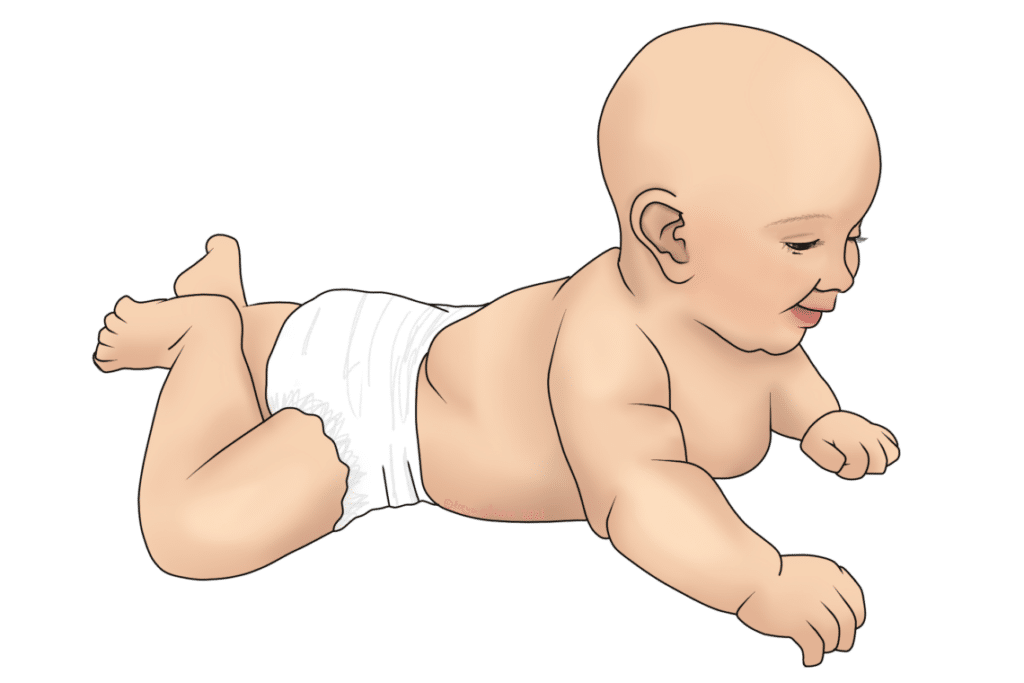

Healthcare professionals use milestones to help monitor your baby’s development. It is important to note that every child develops at their own pace, and that “normal” is a broad range. Monitoring can help to identify significant problems, but may also indicate more subtle things that can be influenced with treatment.

Babies are born with very little head control until their neck muscles begin to develop. “Tummy time” is encouraged from very early on to support your baby in developing the back of the neck, and in getting used to laying on their front.
It’s not uncommon for babies to resist tummy time, especially if there are minor underlying problems. Reflux can make a baby more likely to sick up when put on their tummy, but waiting half an hour or so after a meal might be enough to prevent this. Sometimes reflux is associated with tightness in the diaphragm. The diaphragm helps to support the sphincter that keeps the stomach contents down, so if this is the case with your baby, you might find benefit in some osteopathic treatment to the diaphragm.
We can work with you to find more comfortable ways to get your baby on their front. Distracting toys can be very useful here, or tricks like laying baby on your front. This keeps them slightly more upright, and they find comfort in being close to you.
Supported sitting before baby is ready to do so themselves can help to strengthen the necessary muscles and encourage confidence. Before baby has adequate head control, this should be done carefully if at all- your paediatric osteopath or health visitor can advise. At this stage, encouraging rolling can be a more appropriate first step.
You might notice that your baby prefers to roll one way and struggles with the other. Sometimes this is associated with torticollis: when the neck is restricted in turning one way. This is commonly just a muscular problem, so management is relatively simple. We do screen for more serious conditions that present similarly and will refer on where appropriate.
Crawling and walking can occur in either order, with some babies being happy to sit still until they learn to cruise and walk. Core strength, building on that gained for sitting, is crucial.
Some joints are very soft until later childhood, so avoid pulling your baby up by the hands. Instead allow them to use their own strength, with you just providing support and guidance. Once they are able to pull themselves up, you can try setting up a course along low tables and sofas to encourage cruising.
Specific examples are given above for how your paediatric osteopath may be able to help your baby to reach their milestones. It is important to reiterate that babies all develop on their own timeline, and that our role is to support where there may be a hurdle. We can help to identify ailments that might be hindering your baby’s movement, and address them appropriately. If you are concerned about your baby’s development, your health visitor or GP may be the most appropriate first port of call.
Make an appointment here for your baby in Leicestershire or Rutland